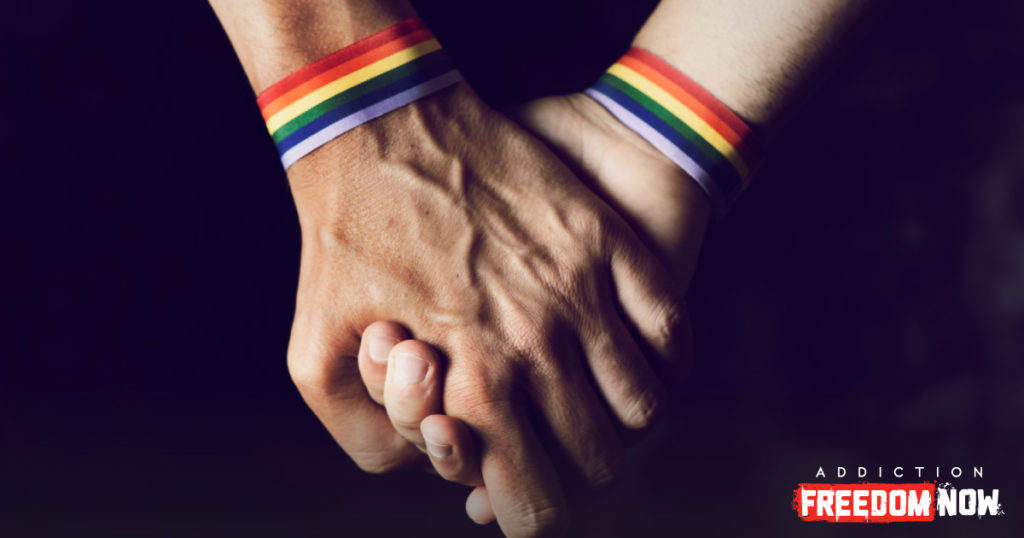Addiction recovery offers the best chance of success with individualized treatment, and LGBTQ gender specific drug treatment can be difficult to find. Additionally, some recovery centers that claim to offer LGBTQ-friendly treatment services do not actually provide the full range of amenities and services that most LGBTQ people would need to feel comfortable in rehab. LGBTQ individuals also often struggle with family issues and interpersonal relationships that can make substance abuse recovery more difficult.
LGBTQ-Specific Risks With Substance Abuse
LGBTQ addiction treatment requires the same framework as treatment for anyone else, but the elements of that framework will likely be more complex. Many LGBTQ individuals struggle with family tensions or alienation from others who do not agree with aspects of their lifestyles. Some have suffered abuse and traumatic experiences due to their identities. Uncovering and addressing these underlying factors is essential for any recovery experience, and members of the LGBTQ community tend to face several specific risks more often and more acutely than others.
Struggling With Identity

Family plays a crucial role in addiction recovery, and unfortunately, many LGBTQ individuals have suffered ridicule and even alienation from parents and other relatives who do not approve of the LGBTQ lifestyle. This can be a driving force behind an addiction and propel an LGBTQ individual into substance abuse. Drugs and alcohol can also be a coping mechanism for co-occurring mental health disorders like depression and anxiety. Studies indicate that about 25% to 30% of the LGBTQ community uses drugs; a significantly higher percentage than the rest of the population, and the roots of this trend involve the typical struggles facing many members of the LGBTQ community who may not have the support and acceptance found in more progressive areas of the country.
Community Social Trends
During the sexual revolution of the 1970s and 1980s, the LGBTQ community still faced quite a bit of criticism and skepticism from the more traditional population, but they started to feel more confident in the public spectrum and be more open about their lifestyles. This had a few unfortunate ramifications; the club and bar scene became the social norm for many LGBTQ individuals and this inherently led to higher rates of drug and alcohol consumption in the LGBTQ community. LGBTQ individuals are also more prone to contracting sexually transmitted infections, and drug use can amplify this risk tremendously.
Alienation From Family And Society
LGBTQ individuals often face risks that the rest of the population does not:
- Stigmatization and discrimination due to sexual orientation
- Rejection or shaming from friends and family after coming out
- Workplace discrimination or even loss of employment
- Harassment and hate crimes due to sexual orientation
- Internalized homophobia and feelings of self-hatred from conflicts with identity
These issues can make it easy for an LGBTQ person to slip into substance abuse as an escape or coping mechanism. Unfortunately, many LGBTQ individuals turn to drugs and alcohol to numb themselves from these negative influences and develop substance abuse problems.
Co-Occurring Disorders
The LGBTQ community battles addiction the same way as anyone else, but they face unique risks during the process. LGBTQ individuals are more likely to suffer physical and sexual abuse due to their personal identities and may suffer traumatization as a result of these incidents. Feelings of isolation from bigoted family members can also lead to severe mental health issues later in life, like depression, compulsive sexual behaviors, and sex-related anxiety. Just like any other person, an LGBTQ person is in extreme danger when he or she decides to start treating mental health disorders with drugs and alcohol. This creates a cycle of dependency that can be very difficult to break.
LGBTQ Redefines Addiction Rehab: Finding The Right LGBTQ Treatment Service
Any member of the LGBTQ community in need of addiction treatment services needs to take the time to thoroughly research the available centers to find one that offers a well-rounded variety of services and therapies sensitive to LGBTQ needs. For example, finding sex-specific treatment centers can be challenging for many reasons. Straight men in rehab may not feel comfortable sharing bathing and living facilities with a gay man. Females in recovery may feel the same about a transgender woman sharing their amenities.
Preventing these clashes is important to recovery; the rehab environment should be supportive and constructive instead of judgmental and alienating. Failing to provide an LGBTQ person with appropriate accommodations and services that address his or her needs can be detrimental to the healing process.
Community-Focused Approach To Treatment
LGBTQ individuals have historically faced great difficulty finding medical care without judgment from caregivers, and this has bled into the substance abuse treatment sector. However, the general public’s perception of the LGBTQ community has shifted dramatically over the past few decades. More people than ever are not only accepting and tolerant of the LGBTQ community but also encouraging and supportive of them living freely in the open without shame or fear.
Community-focused approaches to treatment generally report higher rates of success than generic substance abuse treatment plans. When people enter a substance abuse treatment center that takes their individual needs and risk factors into account, they stand a better chance of recovering and maintaining sobriety in the long run. Some of the things that an LGBTQ-friendly treatment center should address include:
- Handling peer pressure in clubs, bars, or the LGBTQ social scene in general
- Depression, guilt, and anxiety due to cultural ideas about sexual orientation or identity
- Learning to manage prejudices from others
- Encouragement for coming out and accepting one’s true identity
Finding Help With Drug And Alcohol Recovery
The Addiction Freedom Now community is a best-in-class resource for anyone seeking treatment for drug and alcohol addiction. We help connect people from all backgrounds struggling with substance abuse with valuable resources and support services all over the country. LGBTQ individuals should be very discerning in their choice of treatment centers, and Addiction Freedom Now can help.





No Comments